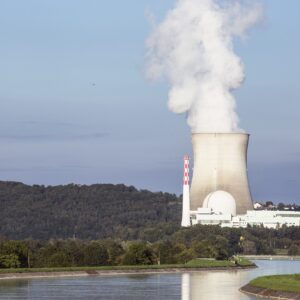Amrith Ramkumar of The Wall Street Journal reports on the race to build better air conditioners. “When air conditioning is needed, the solution is brought in contact with air, absorbing water and removing humidity. The air is cooled within a component called a heat exchanger using a high-efficiency method to lower air temperature by exposing...
Don’t Give Up on America
Chris Barnard and Kai Weiss write in National Affairs about the exceptionalism of America. “The American economic model of limited government, private initiative, and free enterprise unleashed and helped sustain the dynamism and proactivity of its people. Even today, with rising economic competition across the globe, 45% of start-ups and 50% of unicorns (start-ups valued...
Clean Up Environmental Regulations for a Cleaner Environment
Lawmakers control the purse strings, and that gives them the power to drive positive change. By slashing through red tape and encouraging environmental innovation, they can improve American policy and help deliver a cleaner environment.
Asia must reach net zero before the world can do so, says Petronas CEO
"'Unfortunately, the narrative to date has been driven by idealists. Extremists who believe there’s a binary switch that overnight we can turn from System A to System B,' he said, referring to System A as the inherent fossil fuel backed economy, and System B as decarbonizing to zero carbon overnight.'"
Nuclear Power’s Next Big Event
"Nuclear power growth will end with the next radiation release unless we replace regulators with people who observe facts and consequences. The near century of concessions changing 1934 radiation limits from 40 microSv/hour to 0.001 Sv/year has not reduced harm one bit, but has increased public fear because the more restrictive limits have no evidential justification. Fear of nuclear power has killed many more people than radiation."
Why Kenya could take the lead in carbon removal
"Because the earth’s crust is thinner than usual along the rift, it has vast geothermal potential. The American government reckons Kenya alone could generate 10,000mw of geothermal power, more than ten times the amount it currently produces. A by-product of such power stations is plenty of waste steam, which can then be used to heat dac machines. Moreover, since close to 90% of Kenya’s power is renewable, the electricity these machines consume does not contribute to more global warming."
Direct air capture pact gets bipartisan backing
"Wyoming’s accessible permanent geologic storage and existing infrastructure and Colorado’s developing policy environment to 'evaluate the regulatory, economic, technological, and research opportunities in the carbon dioxide removal and direct air capture area,' are cited as driving forces behind the partnership."
How environmental groups fuel forest fires
"Too often, their work is made much more difficult — if not impossible — by far-left environmental groups who use strategic lawsuits to prevent forest management activities from taking place. It’s time that elected officials in the nation’s capital put an end to these abusive lawsuits or, at a minimum, roll back some of the worst impacts."
Green Ammonia
"Green ammonia is emerging as a potential enabler of the green hydrogen economy, as a sustainable fuel in maritime transportation and other applications, and as a replacement for synthetic ammonia in agricultural applications. With a market demand expected to almost double in the next 7 years and the quest for novel, sustainable production processes, it also presents a significant opportunity for venture investments."
Is China really leading the clean energy revolution? Not exactly
"Scratching through the big numbers, two issues deserve the world’s deeper understanding. The first is that China’s successful clean technology campaign has more to do with its economic strategy than its climate commitments. The second is that, alongside its impressive achievements in renewable energy, China is also one of the world’s biggest polluters. Neither is likely to change imminently."









